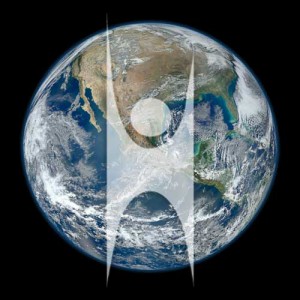June 21: Happy World Humanist Day

By James A. Haught
People sometimes ask me whether I’m an agnostic, an atheist, a skeptic–or what. I have a standard reply: I don’t think about labels; I just think about being honest and truthful.
Honest people don’t claim to know supernatural stuff that nobody can know. Truthful people don’t say they’re sure of gods, devils, heavens, hells, miracles, saviors and the like, when there’s no actual evidence. Ministers who proclaim certainty about invisible, magical things are dishonest, I think.
Years ago, when I was a young news reporter, my city editor was an H.L. Mencken-style cynic who laughed at hillbilly preachers, and I joined him. But as a naïve seeker of wisdom, I worried–so I told him, “OK, you’re right that they’re spouting fairy tales and mumbo-jumbo, but what’s the actual truth? Why are we here? Why is the world here? Why do we live and die? What answer can an honest, sincere, thinking person give?”
He eyed me and replied, “You can say: I don’t know.” Bingo. That rang a bell in my psyche that I’ve never forgotten. Admitting that you don’t know is truthful. It’s just about the only honest stand you can take. Confessing that you cannot answer is moral and honorable.
Later, I realized that an honest person can go further to reach rational conclusions about whether supernatural claims are plausible. You can’t really prove that invisible fairies don’t dance in the darkness, or that the Virgin Mary doesn’t miraculously appear to believers, or that witches don’t copulate with Satan, or that the Angel Moroni didn’t reveal golden plates and later take them back to heaven, but your intelligence can conclude that such claims are so far-fetched that they should rank with children’s fantasy stories.
Therefore, honesty leads you to the secular humanist outlook: to acceptance of scientific evidence as the key to knowledge, plus a determination to strive to help humanity without supernatural aid. Humanism is a belief system that a truthful person can embrace.
Worldwide, the entire species accepts humanism in the sense of wanting to make life better for people, but the humanist movement as an alternative to religion is a smallish crusade led by a few dedicated intellectuals. Most folks never heard of groups like the American Humanist Association or the International Humanist and Ethical Union (IHEU), but those organizations are busy at work, endlessly trying to counteract religious supernaturalism.
Back in the 1980s, some of these groups launched World Humanism Day, observed every June 21 on the summer solstice. Choosing the time of longest daylight was designed to symbolize the light of reason overcoming the darkness of superstition. Each year, some skeptic groups hold parties or ceremonies on June 21.
But the holiday hasn’t exactly swept the planet. I had never heard of World Humanist Day until I was asked to give this talk about it.
However, below the radar, humanism truly is sweeping the planet. It began with thinkers in Ancient Greece. Then it revived among intellectuals in the Renaissance, the Enlightenment and the Age of Reason. As the modern scientific age snowballed, religion retreated and secular humanism soared. The World Encyclopedia of Christianity says, “The number of nonreligionists… throughout the 20th century has skyrocketed from 3.2 million in 1900, to 697 million in 1970, and on to 918 million in A.D. 2000.”
We’re living in the long-predicted Secular Era. Religion is dying. Humanism is the value system fitting the new epoch. The IHEU gives this definition:
Humanism is a democratic and ethical life stance that affirms that human beings have the right and responsibility to give meaning and shape to their own lives. It stands for the building of a more humane society through an ethics based on human and other natural values in a spirit of reason and free inquiry through human capabilities. It is not theistic, and it does not accept supernatural views of reality.
One dictionary defines humanism as “seeking, without religion, the best in, and for, human beings.” Another calls it “a doctrine, attitude or way of life centered on human interests or values; especially, a philosophy that usually rejects supernaturalism and stresses an individual’s dignity and worth and capacity for self-realization through reason.” Still another says it’s “the rejection of religion in favor of the advancement of humanity by its own efforts.”
And the Oxford Companion to Philosophy says humanism is “an appeal to reason in contrast to revelation or religious authority as a means of finding out about the natural world and destiny of man, and also giving a grounding for morality…. Humanist ethics is also distinguished by placing the end of moral action in the welfare of humanity rather than in fulfilling the will of God.”
So—happy World Humanist Day!
 James A. Haught is editor of West Virginia’s largest newspaper, The Charleston Gazette, and a longtime freethought writer. This talk was prepared for his local Unitarian Universalist discussion circle.
James A. Haught is editor of West Virginia’s largest newspaper, The Charleston Gazette, and a longtime freethought writer. This talk was prepared for his local Unitarian Universalist discussion circle.
